
Anglers fish in so many different conditions: prime ocean with features for specific pelagics; bottom structure where currents influence where fish will stage; inshore docks and bridges. Is it any surprise that we must tweak our techniques based on the conditions we encounter?
All this variability means you have to treat rigging live baits for inshore, coastal and offshore gamefish like a science. If you can isolate the behavior your target wants to strike, you can use hook placement to make your bait behave in that fashion.
We've used dead baits here to illustrate five ways to rig them live so that they'll swim the way you want when you're on the water. Give these hook placements a try and see if your catches soar.
DORSAL
For baits intended for slow-trolling, drifting and kite fishing, primarily goggle-eyes, runners and mullet, place a hook in front of their dorsal fin. This, along with the pressure from taut lines and a moving boat, promotes a slightly downward swimming attitude. Especially important for kite-deployed baits, the down-turned head and swimming motion of a dorsal hooked bait will keep water flowing across its gills, even as its back and tail splash in the waves at the surface.
The closer a hook is placed to a bait's dorsal fin, the deeper that bait will dig. For a more horizontal attitude, position the hook farther forward.
Bridle your baits when you can; this technique delivers better hookup ratios.
NOSTRILS
You should also use bridles when pinning the nostrils of midsize baits like horse pilchards, large herring and menhaden. Nostril-pinned baits swim near the surface with a drifting boat and into the current at anchor.
Nostril-hooking also works well for probing around bait schools, bridges, passes and inlets. It's also good for pitch-baiting and bottom-fishing when you're fishing with a weight.
Diese Geschichte stammt aus der June - July 2023-Ausgabe von Salt Water Sportsman.
Starten Sie Ihre 7-tägige kostenlose Testversion von Magzter GOLD, um auf Tausende kuratierte Premium-Storys sowie über 8.000 Zeitschriften und Zeitungen zuzugreifen.
Bereits Abonnent ? Anmelden
Diese Geschichte stammt aus der June - July 2023-Ausgabe von Salt Water Sportsman.
Starten Sie Ihre 7-tägige kostenlose Testversion von Magzter GOLD, um auf Tausende kuratierte Premium-Storys sowie über 8.000 Zeitschriften und Zeitungen zuzugreifen.
Bereits Abonnent? Anmelden
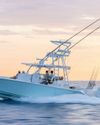
Jupiter 40
The new Jupiter 40 shines brightly amid an increasingly crowded orbit of similar-size offshore center-console fishing machines.
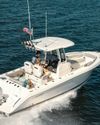
Pursuit S 248 Sport
The new S 248 Sport offers a versatile alternative to the growing number of mega-size, multi-outboard center-console fishing boats.

Pressing Pause
MAKING THE MOST OF THE TIDE'S RUNNING-SLACK PERIODS WILL UP YOUR GAME.
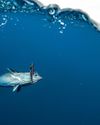
NEED FOR SPEED
SPEED-TROLLING WITH DIVING LIPLESS PLUGS HAS EMERGED AS THE NEXT BIG THING FOR FINICKY PACIFIC BLUEFIN TUNA.
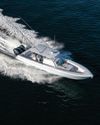
FISH WIDE OPEN
TODAY'S NEW BREED OF HIGH-PERFORMANCE OUTBOARD BOATS EXPANDS ANGLING HORIZONS
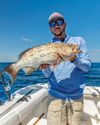
FLORIDA KEYS OVERNIGHTER
THE DRY TORTUGAS IS NO LONGER THE FINAL FRONTIER, BUT THE BOTTOMFISHING IS STILL WORTH THE TRIP.
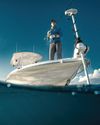
A Quiet Revolution
Brushless saltwater trolling motors turn up the efficiency and turn down the noise.
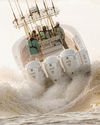
The Right Propeller
Changing out your props? Here are five things to know first, straight from the experts.
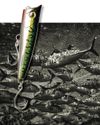
Topwaters for Every Speed
There's nothing better than watching a fish slam a plug as it rips across the water's surface.
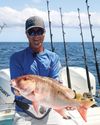
Don't Let Current Ruin Your Bottom-Fishing Trip
Lengthen your soak time with this fast-current bottom rig.